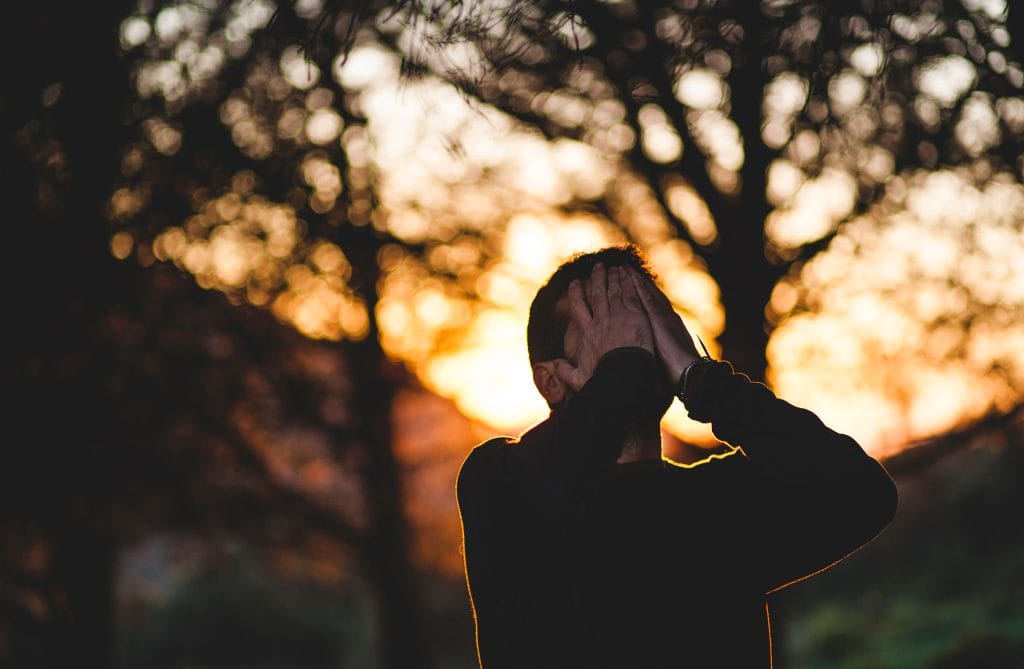Depression can negatively impact many aspects of our daily lives. Over 60% of The Spark’s clients come to us seeking support for depression, seasonal affective disorder (SAD) or other mental health-related issues when they start to adversely affect their relationships, home life or work.

If you think you need counselling support for depression or it has been recommended by your GP, please call The Spark in confidence on 0808 802 2088 during our opening hours. Or complete an enquiry form and we will call you back at a suitable time.
Depression – Frequently Asked Questions
In this section, you can find answers to common questions about depression and how counselling can help.
What is depression?
Depression is a clinical term for when an individual experiences low mood, low self-esteem and limited interest in activities for an extended period of time. Every case of depression is different however sufferers can feel like managing their daily life is a struggle. Normal activities like eating, sleeping, working and socialising can become very difficult to cope with. Depression is a common mental health condition that can affect anyone, regardless of age, gender, or background.
Find out more about Depression on the NHS Inform website.
What is seasonal affective disorder?
Seasonal Affective Disorder (SAD) is a type of mood disorder characterized by recurring episodes of depression that occur at specific times of the year, typically during autumn and winter. It is often referred to as seasonal depression. Unlike depression, which can happen at any time, SAD follows a predictable seasonal pattern.
The primary cause of SAD is believed to be changes in light exposure, disrupting the body’s internal clock. Symptoms include persistent feelings of sadness, loss of interest in enjoyable activities, fatigue, changes in appetite, sleep problems, difficulty concentrating, and irritability.
Treatment options for SAD include light therapy, psychotherapy, antidepressant medication, and lifestyle changes like exercise and stress management.
If you suspect SAD or depression, consult a your GP for an accurate diagnosis and appropriate treatment.
Find out more about Seasonal affective disorder on the NHS Inform website.
What can cause depression?
The causes of depression vary from individual to individual. The root of the problem is typically a mixture of factors which can include issues in your past or present life.
The following is a list of possible issues, past and present, that can contribute to depression but it is not exhaustive:
- extended periods of stress
- chronic illness
- redundancy/unemployment/underemployment
- relationship difficulties
- separation or divorce
- financial worries
- sexual identity
- bereavement/loss
- previous traumatic experiences
- the change in seasons
You can read more about the symptoms and potential causes of depression.
Alternatively, make a counselling enquiry by completing our online form or freephone 0808 802 2088.
How can counselling help with depression?
Counselling – also known as talking therapies and psychological therapies – can be an effective treatment option for depression, as it provides individuals with a safe and supportive space to explore their thoughts, feelings, and behaviours.
Research has shown that counselling can be an effective treatment option for depression, particularly when combined with other forms of treatment such as medication or lifestyle changes. A review of randomized controlled trials found that cognitive-behavioural therapy (CBT), a type of counselling that focuses on changing negative thought patterns and behaviours, was an effective treatment for depression1. Another study found that interpersonal therapy (IPT), another form of counselling that focuses on improving interpersonal relationships, was effective in reducing symptoms of depression2.
Counselling can also help individuals develop skills for managing stress and improving their overall well-being, which can help prevent future episodes of depression. According to a third study, individuals who received CBT for depression were less likely to experience a relapse of their symptoms than those who did not receive therapy3.
Counselling can be an effective treatment option for depression, particularly when used in combination with other forms of treatment. By providing individuals with a safe and supportive space to explore their thoughts and feelings, counselling can help individuals develop new coping strategies and make positive changes in their lives.
The Spark counsellors take a solution-focused and integrative approach to your counselling sessions. They will consider your individual circumstances and may use elements of different types of therapy such as CBT or IPT to help you explore and cope with your problems.
Find out more about counselling by completing our enquiry form or freephone 0808 802 2088.
Sources:
- Butler et al., 2006. The empirical status of cognitive-behavioral therapy: A review of meta-analyses. Clinical Psychology Review.
- Cuijpers et al., 2011. Interpersonal psychotherapy for mental health problems: A comprehensive meta-analysis. American Journal of Psychiatry
- Hollon et al., 2005. Prevention of relapse following cognitive therapy vs medications in moderate to severe depression. Archives of General Psychiatry
Can you get counselling free on the NHS?
Yes, you can be referred for counselling by your GP. However, waiting times can be lengthy and you make be referred to an onlne guided self-help course first. Organisations like The Spark offer affordable one-to-one counselling sessions.
When is it time to get support for depression?
There is no right or wrong answer to this question. Most people seek counselling and support for depression once it begins to negatively impact their daily lives. Others begin counselling when they feel they have exhausted other options like talking to family or friends.
If you think you might be suffering from depression, contact your GP first to talk about how you are feeling and potential courses of treatment, which may or may not include counselling or other talking therapies.
To find out more or book a counselling appointment, please complete our enquiry form or freephone 0808 802 2088.
What else can I do?
Treatment for depression often involves a combination of self-help, talking therapies and/or medicines. There are various coping strategies you can try if you’re feeling depressed.
Exercise
Numerous research studies have confirmed a link between exercise and mental health. Exercise releases endorphins into our bodies – a natural feel-good chemical – that helps to boost mood.
Exercise can also help with depression as it provides a source of social interaction. Depression can cause an individual to isolate themselves but making a commitment to go walking with a friend, joining a fitness class or attending a sports club can help overcome this.
Meditation and mindfulness
Meditation and mindfulness activities are increasingly popular ways to promote good mental health. Both techniques promote a philosophy of being grounded in the present moment and can help with negative thoughts and worries that are common with depression and low mood.
There are a wide range of free and paid-for mobile phone apps available that offer guided meditation stories, meditative music and mindfulness techniques. Popular examples include Headspace, Pzizz, Slumber and Calm. There is also a wide range of mindfulness books and guides available. You can also search for mindfulness coaching and classes in your local area.
Stay connected
Staying connected to friends and family is important for people struggling with depression. Depression often causes us to feel unloved and unwanted. Low self-esteem can lead depression sufferers to cut themselves off from those around them.
Immediate support for depression
If at any point you start to have thoughts of harming yourself or feel like your life isn’t worth living, please get help straight away by:
- Contacting your GP and asking for an emergency appointment
- Contacting Samaritans on 116 123 – they offer 24-hour a day confidential emotional support
- Calling NHS 111 if you need help out of hours
How to book a counselling for individuals appointment
Counselling sessions can be booked via our appointments team.
To get started complete the counselling enquiry form below and a member of our appointments team will follow up with you to confirm your availability.
Alternatively, you can call us for free on 0808 802 2088 during our opening hours.
Enquire about counselling today
Whether you’re ready to book an appointment or you just want some more information about counselling use the form below to get in touch.

